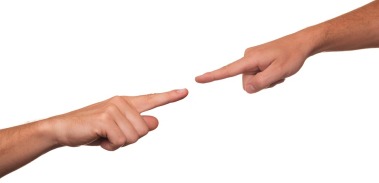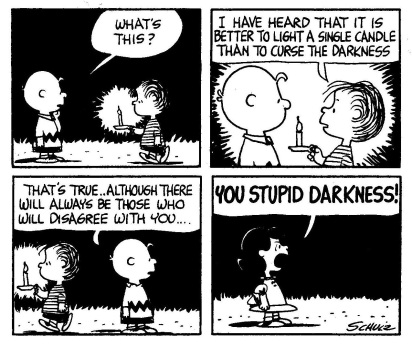A New Way to Play the Blame Game
Blamed anybody lately for some woe in your life? If you have, you’re not alone. The Blame Game is one of our most popular pastimes, right up there with March Madness and ignoring telemarketers.
And that brings me to the Plaque. (The blame game, not telemarketers, although some days telemarketers feel like a plague.)

You’re probably familiar with the basic facts about the Plague. Also called the Black Death, the Plaque ran rampant through Europe for five years. Around 20 million people died—1/3 of Europe. I’ll spare you the details of what happened to a person with the plague, but let’s just say it was excessively nasty and gross. It was painful. Sometimes it was quick—some people went to bed healthy and were dead by morning—and others suffered.
The plaque hit Europe in October 1347. Twelve ships arrived in a Sicilian port, and all the sailors were either dead or close to it. Something was obviously wrong, so the Sicilian authorities immediately sent the ships away—but it was too late. The plague was already loose in the town and spread quickly through Europe.
We know now what caused the plague. It wasn’t the rats that stowed away on the ships and then scampered ashore; it was the fleas on the rats. Gas station restrooms are cleaner than medieval Europe, so the rats and fleas ran rampant.
So what does this have to do with blame? Even the most learned people in the 14th century were clueless about the Black Death, so to explain it they were compelled to lay the guilt somewhere.
- Some scholars blamed the stars. This week, March 20, marks the “birthday” of the plague. That’s the date some brilliant European minds determined the “a triple conjunction of Saturn, Jupiter and Mars in the 40th degree of Aquarius” led to the creation of the plague.
- Others blamed the Jews, whom their anti-Semitic logic labelled as troublemakers. Thousands of Jews were massacred in hopes of stopping the plague.
- Others preferred to blame heretics.
- Others blamed the greedy, the worldly, the fornicators, the blasphemers, the … well, you know, other people. In essence, these self-righteous people were blaming God, who sent the plague as punishment because of those others sinners.
If you ask me, sometimes bad things just happen because the world is a broken place. The entrance of sin brought about a fallen humanity and a fallen world where nasty things can happen—like disease-carrying fleas hitching rides on rats.
Speaking of disease-carrying fleas hitching rides on rats, let’s talk about government. (Just kidding. Sort of.) Our country is in a mess.

- The Democrats blame the Republicans. The Republicans blame the Democrats.
- The liberals blame the reactionary religious fundamentalists. The conservatives blame the the gays or Hollywood or whoever stands against them this week.
- Some blame the church for trying to intervene, stick their nose in others’ business, and do too much. Others blame the church for not doing enough.
- Lawsuits are rampant because we want to blame someone else because we don’t know the hot coffee we just ordered might actually be hot … we shouldn’t use a blow dryer in the shower … we shouldn’t grab the business-end of a running chainsaw … and on and on it goes.
Let me offer a better approach—a more Christ-centered approach.
1. Admit your part in the problem. Let’s drop the self-righteous act of blaming everybody but ourselves. Really don’t think you have any culpability in the matter? OK, fine, but don’t come at the issue with a sanctimonious “If you followed my example, you wouldn’t be in this mess” attitude.
2. Do what you can to fix the problem. (Playing the Blame Game does not count as doing something.)
It is far better to light the candle than to curse the darkness. —W. L. Watkinson
 Our failure to be proactive and do something positive only contributes to the problem. We have become modern-day Pharisees.
Our failure to be proactive and do something positive only contributes to the problem. We have become modern-day Pharisees.
“Woe to you, teachers of the law and Pharisees, you hypocrites! You give a tenth of your spices—mint, dill and cumin. But you have neglected the more important matters of the law—justice, mercy and faithfulness. You should have practiced the latter, without neglecting the former” (Matt. 23:23).
Step in. Do what you can—and do it with grace and humility.
“All of you, clothe yourselves with humility toward one another, because, ‘God opposes the proud but shows favor to the humble’” (1 Pet. 5:5).
God will hold me accountable if I fail to do anything but blame others.
“If anyone, then, knows the good they ought to do and doesn’t do it, it is sin for them” (Jas. 4:17).
And in that moment, I have no one to blame but myself.





